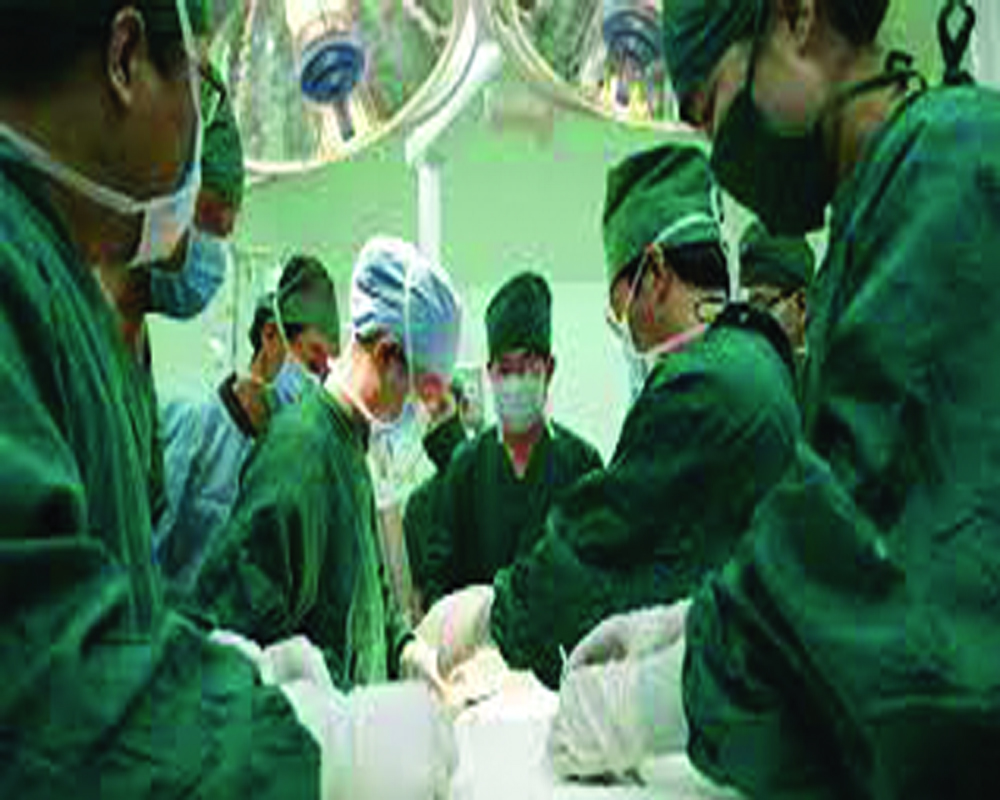People should also eat a balanced diet, practice yoga and exercise, eschew tobacco and alcohol to reduce chances of getting cancer
This year, the theme of ‘World Cancer Day’ on February 4, is ‘Close the Care Gap’. The mere mention of the word ‘cancer’ sends a shiver down the spine. In such a situation, the state of minds of people suffering from cancer and those taking care of cancer patients is indescribable. If there are ‘gaps’ in the various stages of cancer care, such as in diagnosis, surgery, radiotherapy, chemotherapy, and palliative care, then the enhanced despair becomes unimaginable. In this context, this year’s theme is relevant, as it will take a long time for any health system to completely live up to the ideal standards of care.
There may be a dearth of medical facilities at times or treatment may be too expensive. At times, cancer risk factors in people’s lifestyles and environments may be excessive, and the general public’s “health-seeking behavior” may be a challenge also. There is also a great need for provision of palliative care for cancer patients in the terminal stage. In effect, there are gaps in expectations and real situations at every stage of cancer care. At times more, at times less.
In this context, it is relevant to mention the National Health Policy (2017), Ayushman Bharat Health and Wellness Centres (AB-HWC), Pradhan Mantri- Jan Arogya Yojana (AB-PMJAY), Pradhan Mantri-Swasthya Suraksha Yojana (PMSSY) and the special efforts being made in the field of cancer. AB-HWC is a well thought out strategy by the Government of India to ensure comprehensive primary healthcare.
The Prime Minister has given an ambitious target of converting all the Sub-Health Centres and Primary Health Centres in the country to Health and Wellness Centres (HWCs). Today, there are more than 89,000 HWCs in the country through which preventive, promotive and comprehensive primary healthcare is being provided. ASHAs and ANMs visit door-to-door to identify early symptoms in people above 30 years of age for five major diseases namely hypertension, diabetes and oral, breast and cervical cancer and share information on lifestyle changes to prevent cancer. In effect, it can be said that a tremendous effort is being made to close the gaps at the initial stage of cancer care, which is also showing positive results.
Efforts are also being made in the country to prevent and control the major causes of cancer through the National Program for Prevention and Control of Cancer, Diabetes, Cardio-vascular diseases and Stroke (NPCDCS). The objective of this program is to spread public awareness about cancer, encourage people to improve their lifestyle and set-up Non-Communicable Disease (NCD) clinics in Community Health Centres and District Hospitals. By expanding the services of CT-Scan, MRI, Mammography and Histopathology in district hospitals, the gap in early detection of cancer is also being bridged.
Through ‘Ayushman Bharat - Pradhan Mantri Jan Arogya Yojana’, cashless health services are being provided to a large section of the population in selected government and private hospitals. The Prime Minister’s vision of setting up new medical colleges in the country and upgradation of district hospitals into medical colleges is also helping strengthen secondary care. Similarly, 22 AIIMS are being set up in the country in a phased manner to expand tertiary care. Grants are also given for setting up State Cancer Institutes and Tertiary Cancer Care Centres under the “Tertiary Cancer Care Centres Scheme”, which can be used towards diagnosis and treatment of cancer, conducting tests, research, providing palliative care and for participation in cancer registry programs. A 700-bed National Cancer Institute at Jhajjar, Haryana and a 460-bed Chittaranjan National Cancer Institute in Kolkata have also been started.
All these initiatives are proving useful in closing the gap in the areas of surgery, radiotherapy, chemotherapy, etc., in cancer care.
I think the actions being taken in the country to control cancer are historic. While there will always be scope for improvement in these initiatives, a huge responsibility also lies with the people of the country, especially the youth, to adopt lifestyles in a manner that the possibility of getting cancer is reduced to the minimum. Lifestyle changes like eating a balanced diet, practicing yoga and exercise, eschewing consumption of tobacco and alcohol will go a long way in achieving this objective. Such efforts will not only save them from chances of cancer, but will also help preserve quality and timely services for needy cancer patients and in turn help in truly realizing this year’s theme of ‘Close the Care Gap’.
(The writer is Additional Secretary, Union Health Ministry. The views expressed are personal.)


























